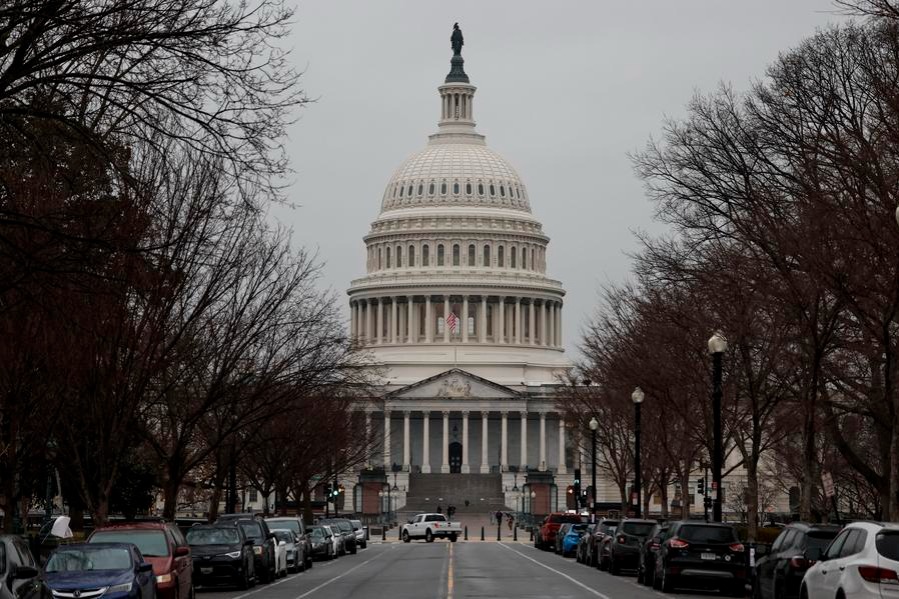Tech giants' consumer data sharing aimed at containing financial risk


Editor's note: Matteo Giovannini is a finance professional at the Industrial and Commercial Bank of China in Beijing and a member of the China Task Force at the Italian Ministry of Economic Development. The article reflects the author's views, and not necessarily those of CGTN.
The growing influence of tech giants around the world is forcing governments to rapidly move from a general laissez-faire approach to a new form of interventionism and scrutiny aimed at setting clear rules that will put to an end the increasingly blurring boundaries between sectors.
According to sources the Chinese government is planning to push tech giants such as Ant Group, Tencent and JD.com to share the vast amount of consumer credit data in their possession in order to prevent an excess level of borrowing and to reduce the chances of fraud.
The plan provides that the Chinese regulator, including the People's Bank of China, will order internet platforms to give up their data to nationwide credit agencies. The agencies will then proceed to share on a large-scale consumer data to banks and other financial institutions.
The move by the Chinese regulator certainly hits at the core the reason of power of internet platforms that have unstoppably grown their level of influence thanks to a crucial asset such as data, considered the oil of the 21st century, and that provide them with an edge in terms of consumer attraction and risk management.
Probably one of the key issues in the planned new policy is that modern digital ecosystems have led to business models where boundaries of traditional industries have rapidly vanished and where sectors previously disconnected are now interconnected sharing the same users and data.
This is especially true for developing nations like China whose digital landscape has seen the birth of companies like Alibaba that has rapidly passed from being an online retailer to a financial company, in other words an everything company, benefitting from an ecosystem that does not prevent the development of cross-industry businesses.
Therefore, Chinese regulator's main purpose is now to proceed promoting a uniform circulation of data that could prevent the problems caused by the current asymmetric distribution of information and, by doing this, to grant stakeholders the opportunity to make more informed decisions.
The possibility for lenders to have access to information on consumers is going on the one hand to increase the general awareness of the level of market risk and on the other hand to rebalance the bargaining power of banks when involved in a partnership with fintech firms.
This is mostly the case of smaller banks that have so far suffered the high level of dependence on data held by fintech partners such as Ant due to structural lack of scale and capillary presence on the territory, something that on the contrary China's Big Four banks can enjoy.
The move to force tech giants to share consumer credit data is going to increase the general level of monitoring in financial markets avoiding unexpected defaults, that were previously generated by a lack of access for underwriters of loans to detailed credit data, while refraining from the possibility that the failure to fulfill an obligation could lead to a widespread systemic risk.
In addition, sharing consumer loan data is going to help banks to better perform their job in evaluating each customer's creditworthiness through the use of big data and artificial intelligence that will eventually help decision-makers to improve the accuracy in the prediction of borrower payment behavior as well as to improve the credit quality of lending and the acceptance rate.
The decision to proceed with consumer data sharing by the Chinese regulator can also be read in light of the recent request to China from the International Monetary Fund in its Annual Article IV report for a containment of financial risk due to a climb in the level of debt at local level and in particular in the private sector, as well as to the general deterioration of credit quality.
In this sense the People's Bank of China already made clear at the Central Economic Work Conference that it is its intention to proceed this year with a balanced approach of stable growth and risk prevention through an increased financial support for small-and-medium enterprises in order to stabilize their level of debt and to reduce the share of bad loans.
All in all, the planned consumer data sharing responds to a growing necessity of safety for the entire domestic financial market and the Chinese government in this regard has demonstrated to have well-understood that the country primarily requires stability while cannot afford the zero-sum game of an unregulated fintech sector.

































